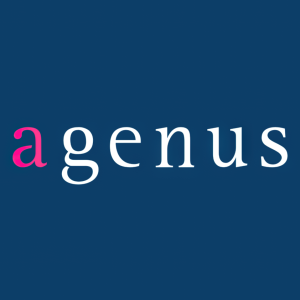Balstilimab Plus Zalifrelimab Data Published in Journal of Clinical Oncology (JCO)
Agenus (NASDAQ: AGEN) reported positive results from a Phase 2 clinical study of the combination therapy balstilimab and zalifrelimab for patients with recurrent/metastatic cervical cancer. The objective response rate (ORR) reached 32.8% in PD-L1-positive patients and 25.6% overall, significantly outperforming existing treatments. Notably, the median duration of response remains unachieved after 21 months of follow-up, indicating promising durability of response. The safety profile was well-tolerated, with no unexpected toxicities noted.
- Objective response rate (ORR) of 32.8% in PD-L1-positive patients.
- Durability of responses higher than approved therapies, with median duration of response not yet reached after 21 months.
- Disease control rate of 52.0% observed in the trial.
- Median overall survival was 12.8 months, with majority of patients alive at 6 and 12 months.
- None.
Insights
Analyzing...
- Objective response rate (ORR) of
32.8% in PD-L1-positive patients and25.6% in all patients regardless of PD-L1 status - Both ORRs and durability of responses are higher than what has been demonstrated with approved therapies for these patients
- Median duration of response (mDoR) not yet reached after 21 months median follow-up
LEXINGTON, Mass., Dec. 22, 2021 (GLOBE NEWSWIRE) -- Agenus (NASDAQ: AGEN), an immuno-oncology company with an extensive pipeline of checkpoint antibodies, adjuvants, and vaccines designed to activate immune response to cancers and infections, today announced the publication of results in the Journal of Clinical Oncology (JCO) from a global Phase 2 clinical study of balstilimab (Bal) plus zalifrelimab (Zal) in second-line (2L) recurrent/metastatic cervical cancer patients who had relapsed after treatment with platinum-based therapy.
“We’re excited to present this data from the largest study conducted to date, assessing the benefit from combined PD-1 and CTLA-4 inhibition in this patient population,” said Steven O’Day, MD, Chief Medical Officer of Agenus. “The combination data with Bal (anti-PD-1) and Zal (anti-CTLA-4) in recurrent/metastatic cervical cancer represents a meaningful improvement over currently available therapies while demonstrating a well-tolerated safety profile. We are committed to pursuing the benefit of combination therapies with first-generation antibodies like Zal as well as with our next-generation candidates which include our Fc-enhanced anti-CTLA-4 antibody AGEN1181.”
The trial showed that in the 125 evaluable patients treated with Bal/Zal, ORR was
“With durable responses and a well-tolerated safety profile, the combined inhibition of PD-1 and CTLA-4 is a much-needed option for patients in this setting,” said David O’Malley, MD, lead study investigator; Professor and Director of the Division of Gynecologic Oncology, The Ohio State University - James Cancer Center.
The Bal/Zal combination continued to show no unexpected toxicities and no new safety signals were identified. TRAEs leading to discontinuations occurred in
About Cervical Cancer
Cervical cancer is a malignancy that originates in the cervix, the lower part of the uterus. It is the fourth most common cancer diagnosed among women globally, with nearly 14,500 patients expected to be diagnosed in the U.S. alone in 2021. Cervical cancer disproportionately affects younger women and is most frequently diagnosed between the ages of 35 to 44 in the U.S., with the average age at diagnosis being 50. Despite preventable measures such as HPV vaccination and early pap-smear that exist for prevention and early detection of disease, over
About Balstilimab
Balstilimab is a novel, fully human monoclonal immunoglobulin G4 (IgG4) designed to block PD-1 (programmed cell death protein 1) from interacting with its ligands PD-L1 and PD-L2. PD-1 is a negative regulator of immune activation that is considered a foundational target within the immuno-oncology market.
About Zalifrelimab
Zalifrelimab is a novel, fully human monoclonal immunoglobulin G1 (IgG1) designed to block CTLA-4 (cytotoxic T-lymphocyte associated antigen 4) from interacting with its ligands CD80 and CD86. CTLA-4 is a negative regulator of immune activation that is considered a foundational target within the immuno-oncology market.
About Agenus
Agenus is a clinical-stage immuno-oncology company focused on the discovery and development of therapies that engage the body's immune system to fight cancer. The Company's vision is to expand the patient populations benefiting from cancer immunotherapy by pursuing combination approaches that leverage a broad repertoire of antibody therapeutics, adoptive cell therapies (through its affiliate MiNK Therapeutics), adjuvants, and proprietary cancer vaccine platforms. The Company is equipped with a suite of antibody discovery platforms and a state-of-the-art GMP manufacturing facility with the capacity to support clinical programs. Agenus is headquartered in Lexington, MA. For more information, please visit www.agenusbio.com and our Twitter handle @agenus_bio. Information that may be important to investors will be routinely posted on our website and Twitter.
Forward-Looking Statements
This press release contains forward-looking statements that are made pursuant to the safe harbor provisions of the federal securities laws, including statements relating to the use of therapeutic candidates balstilimab and zalifrelimab, for instance, statements regarding therapeutic benefit and efficacy, mechanism of action, potency, durability, and safety profile of balstilimab and zalifrelimab, both alone and in combination with other agents, including AGEN1181; future clinical development plans for balstilimab, zalifrelimab, and AGEN1181, alone or in combination; and our ability to obtain regulatory approval for balstilimab, zalifrelimab, and AGEN1181, alone or in combination. These forward-looking statements are subject to risks and uncertainties that could cause actual results to differ materially. These risks and uncertainties include, among others, the factors described under the Risk Factors section of our most recent Quarterly Report on Form 10-Q or Annual Report on Form 10-K filed with the Securities and Exchange Commission. Agenus cautions investors not to place considerable reliance on the forward-looking statements contained in this release. These statements speak only as of the date of this press release, and Agenus undertakes no obligation to update or revise the statements, other than to the extent required by law. All forward-looking statements are expressly qualified in their entirety by this cautionary statement.
Contact
Agenus Inc.
Divya Vasudevan, PhD
781-674-4571
divya.vasudevan@agenusbio.com
Agenus Media Relations
Kimberly Ha
KKH Advisors
917-291-5744
kimberly.ha@kkhadvisors.com








